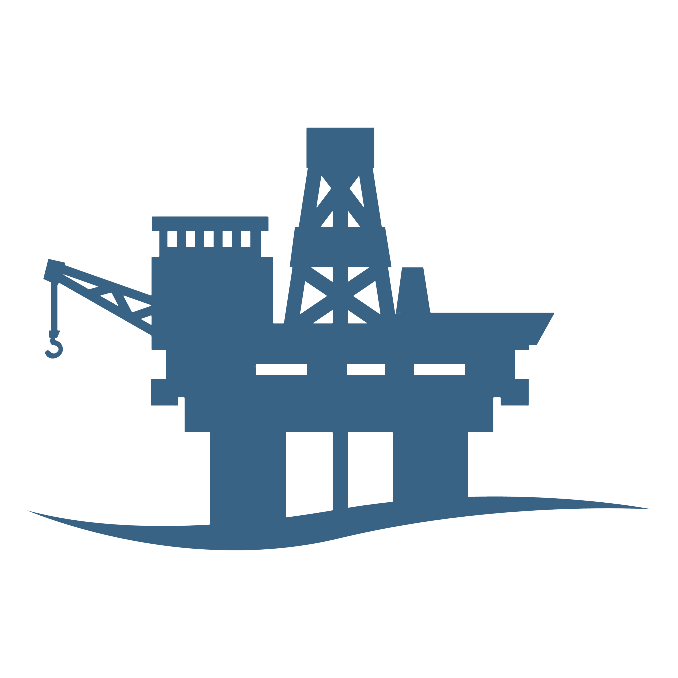Who are we?
Our employment agency offers lucrative vacancies on oil offshore platforms. The cost of our services from the applicant is $ 1000 for each vacancy.
For all questions, write to email: order@seaplatform.org
Work on offshore oil and gas platforms is a complex, highly paid and specific activity related to the production of oil and gas on the shelf. It attracts people due to high salaries, but requires physical and psychological endurance, special skills and readiness to live in isolated conditions.
What is work on offshore platforms?
Offshore oil and gas platforms are engineering complexes designed for drilling wells and extracting hydrocarbons (oil and gas) under the seabed. They can be stationary (fixed to the bottom), floating or semi-submersible, depending on the depth and conditions. Platforms are located in the open sea, sometimes at a distance of 30-260 km from the shore (for example, in Norway or the North Sea).
Workers perform various tasks:
Drilling and production: Control of drilling equipment, well control, core sampling.
Maintenance: Repair and maintenance of equipment, pipelines, electric generators.
Stability: Control of ballast systems for platform stability.
Safety: Compliance with safety regulations, prevention of accidents (e.g. gas, oil and water seeps).
Maintenance: Cleaning, cooking, medical care, logistics.
Work is carried out on a rotational basis: employees live on the platform during the shift (from 20 to 180 days, usually 30-60), then get rest on shore (14-46 days).
Working conditions
Schedule: Shifts are usually 12 hours a day, 7 days a week, for the entire period on the platform. Technical specialists may work 4-hour breaks, and service personnel – 8-hour shifts.
Accommodation: Workers live in cabins (usually 1-2 people), with access to a canteen, gym, Wi-Fi and recreation areas. Conditions range from comfortable (with good food and entertainment) to spartan.
Isolation: Being away from family and friends for long periods of time can be psychologically challenging. Time on the platform passes slowly and social life is limited.
Weather: The work takes place in extreme conditions – low temperatures, high humidity, storms, especially in regions like the Arctic or the North Sea.
Safety: The work is associated with risks (explosions, leaks, storms), so strict adherence to safety regulations is required. The platforms are equipped with rescue equipment, and the personnel undergo training.
Candidate requirements
Education and skills:
Specialists: Engineers (mechanical, electrical, chemical), geologists, drillers, equipment operators. Secondary or higher technical education and experience (3-10 years for senior positions) are required. Certifications such as the International Well Control Forum are required for drillers and supervisors.
General workers: For entry-level positions (driller’s assistants, cleaners, cooks), a secondary education and basic courses are sufficient. Experience in construction or the marine industry is a plus.
Health: A strict medical examination is mandatory. People with chronic diseases (cardiovascular, nervous, gastrointestinal), visual or hearing impairments are not allowed. Age restrictions: usually up to 55 years for men and up to 50 for women.
Psychological stability: Ability to work in isolation, stress resistance, the ability to quickly react to emergency situations.
Salaries and bonuses
Salaries on offshore platforms are high due to the difficult conditions and the shortage of skilled workers:
Norway: USD 8,000–9,000 per month (USD 200–400 per shift) for skilled workers. General workers can earn USD 3,500–4,500 per month.
UAE: General workers — USD 3,500–4,500/month, specialists — up to USD 10,000.
Additional:
Employers pay for travel, accommodation, food and health insurance.
Bonuses are possible for meeting the plan or working in extreme conditions.
Social package (vacation, lifting allowance for young specialists).
Vacancies
Technical:
Drilling engineer, mechanic, electrician, platform stability operator.
Driller, driller assistant, derrick assembler.
Supervisor (work control, safety).
Service workers:
Cook, cleaner, medical worker, logistician.
Waiters (found on large platforms with developed infrastructure).
How to get a job?
Write to us order@seaplatform.org
Indicate your age, what country you are from, what job you are applying for.
Pros and cons
Pros:
High salary and benefits.
Unique experience, valuable in the oil and gas and related industries.
Possibility of career growth (from general laborer to engineer or manager).
Paid travel, housing, meals.
Cons:
Physical and psychological stress: long shifts, isolation.
Extreme conditions: storms, cold, risk of accidents.
Strict health and qualification requirements.
Long absence from home, which can affect the family.
Risks and environmental aspects
Hazards: The work is associated with the risk of accidents (leaks, explosions), although modern platforms are equipped with advanced safety systems.
Ecology: Offshore drilling is controversial due to the potential environmental damage (oil spills, impact on marine life).
Health: Long-term exposure to the sea can affect physical and mental health, but serious health risks are minimal if the rules are followed.
Regional features
Norway: Leader in offshore production. High salaries, strict requirements for qualifications and language. Employment through the Norwegian Directorate of Foreigners (UDI).
UAE: Actively attracts foreigners, including general workers. Comfortable conditions, but knowledge of English is required.
Other regions: USA, Canada, Saudi Arabia also offer vacancies, but with high requirements for experience.
Additional information
Technologies: The platforms are equipped with powerful generators, water fresheners and autonomous systems. Drilling is carried out using echolocation and remotely controlled vehicles. Future: Despite environmental controversies, offshore mining remains in demand due to high demand for oil.
